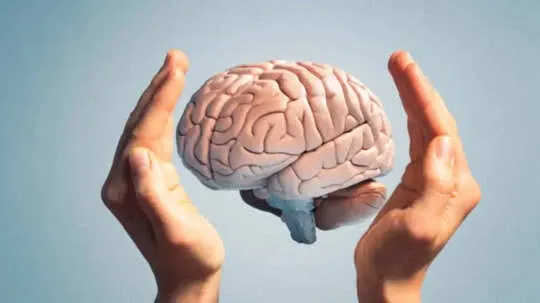Dr Katatol, who has been practicing for the last 33 years, has interesting insights into how you can keep yourself free of any cognitive impairment conditions like dementia. His simple mantra is to follow a few small and simple daily habits that can make a lifelong impact.
When the cells in your brain stop working properly, your muscles stop moving smoothly, and you may lose feeling in parts of your body, slowing down your thinking. The brain doesn't replace neurons that are damaged or destroyed, and so, according to Dr Katakol, it is important to take care of them.
Developing brain health habits is a key way to keep your brain healthy. That includes following safety measures and keeping your brain active and engaged. Try a few of his tried-and-tested brain health tips:
Use it or lose it
"Your brain thrives on challenges, so learn a new skill every day. Solve a puzzle or take a different route to walk on a daily basis," Dr Katakol said on Instagram. By being active, your brain builds new neural connections - a process known as neuroplasticity, which helps improve memory and focus and creates a cognitive reserve against age-related decline.
And so, Dr Katakol suggests doing mental workouts, learning new things, staying socially engaged, and physical exercise, which are key activities that stimulate your brain, enhance its ability to adapt and grow, and help reduce the risk of diseases like dementia and Alzheimer's.
Regulate breathing
"Breathe as though your life depends on it, for it does," says Dr Katakol. He teaches his patients simple breathing exercises, which can help them calm and relax their minds. To do this, you need to take a deep breath and count to four, then stop breathing for four seconds and exhale.
Regulated breathing keeps your mind healthy by increasing oxygen flow to the brain, activating your body's relaxation response, and reducing stress hormones, which improve focus, memory, and emotional resilience. Controlled breathing helps lower your heart rate and blood pressure, balances the autonomic nervous system, and promotes feelings of calm and well-being - making it a powerful tool for managing anxiety, depression, and stress.
Build a social circle
"Isolation hurts the brain as much as bad food does," he said. So, it is important to keep networking with people and socialising. Meeting and interacting with people not just keeps you active physically but also provides constant cognitive stimulation that helps strengthen neural pathways, improves memory, attention, and overall processing speed, and boosts emotional well-being. It also helps you foster a sense of purpose and belonging, lowering stress and making you glide while coping with difficult life events.
According to Dr Katakol, regular social engagement helps build a protective buffer against cognitive decline as well.
